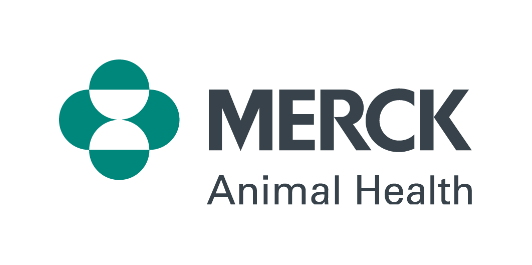Merck Animal Health Launches FORTEGRA® Vaccine in Latin America to Protect Poultry Against Coccidiosis
Vaccine Provides Flocks with Earlier and More Complete Protection
MADISON, N.J., August 10, 2015 – Merck Animal Health (known as MSD Animal Health outside the United States and Canada) today announced the launch of the FORTEGRA® vaccine in Latin America to protect broilers against coccidiosis, a parasitic disease of the intestinal tract. FORTEGRA contains the coccidiosis strains found in broiler houses, including precocious and classic strains of E. maxima, and results in faster immunity and a broader protection, compared to conventional vaccines.
FORTEGRA is effective in controlling all relevant strains of coccidiosis in broilers, including E. acervulina, E. mivati, E. maxima and E. tenella. The vaccine simultaneously exposes flocks to two strains of the E. maxima species of coccidiosis, one of them a precocious strain that stimulates earlier, stronger immunity. Earlier immunity allows more time for compensatory growth and can prevent performance losses.
“Vaccination is an important alternative for controlling coccidiosis in broiler flocks, as using in-feed anticoccidials allows the disease to progress at a subclinical level that is difficult to detect but can result in poor growth, uniformity, feed conversion and breast meat yield,” said Dr. Fernando Vargas, Global Technical Director, Merck Animal Health. “Merck Animal Health is pleased to introduce FORTEGRA, which will help producers improve flock performance and minimize economic losses associated with the disease.”
A pen study demonstrated that FORTEGRA protects more birds and at a faster rate, compared to a conventional vaccine and a control group. Fourteen days after vaccination, both demonstrated significant partial protection (78 percent and 69 percent of birds protected, respectively) compared to a control group (12 percent of birds protected).
At 17 days after vaccination, the FORTEGRA® sample demonstrated significantly better protection (92 percent) than the conventional vaccine (59 percent) and the control group (16 percent). At 21 days post-vaccination, FORTEGRA continued to protect more than 90 percent of birds, compared to 78 percent for the conventional vaccine and 3 percent for the control group.
FORTEGA also resulted in lower lesion scores compared to the conventional and control groups at 14, 17 and 21 days post-vaccination. Low-level intestinal lesions caused by subclinical coccidiosis can occur late in the flock cycle and can have adverse effects on weight gain, days to market, feed conversion and meat yield.
About Merck Animal Health
Today’s Merck is a global healthcare leader working to help the world be well. Merck Animal Health, known as MSD Animal Health outside the United States and Canada, is the global animal health business unit of Merck. Through its commitment to the Science of Healthier Animals™, Merck Animal Health offers veterinarians, farmers, pet owners and governments one of the widest range of veterinary pharmaceuticals, vaccines and health management solutions and services. Merck Animal Health is dedicated to preserving and improving the health, well-being and performance of animals. It invests extensively in dynamic and comprehensive R&D resources and a modern, global supply chain. Merck Animal Health is present in more than 50 countries, while its products are available in some 150 markets. For more information, visit www.merck-animal-health.com or connect with us on LinkedIn and Twitter at @MerckAH.
Forward-Looking Statement of Merck & Co., Inc., Kenilworth, N.J., USA
This news release of Merck & Co., Inc., Kenilworth, N.J., USA (the “company”) includes “forward-looking statements” within the meaning of the safe harbor provisions of the U.S. Private Securities Litigation Reform Act of 1995. These statements are based upon the current beliefs and expectations of the company’s management and are subject to significant risks and uncertainties. If underlying assumptions prove inaccurate or risks or uncertainties materialize, actual results may differ materially from those set forth in the forward-looking statements.
Risks and uncertainties include but are not limited to, general industry conditions and competition; general economic factors, including interest rate and currency exchange rate fluctuations; the impact of pharmaceutical industry regulation and health care legislation in the United States and internationally; global trends toward health care cost containment; technological advances, new products and patents attained by competitors; challenges inherent in new product development, including obtaining regulatory approval; the company’s ability to accurately predict future market conditions; manufacturing difficulties or delays; financial instability of international economies and sovereign risk; dependence on the effectiveness of the company’s patents and other protections for innovative products; and the exposure to litigation, including patent litigation, and/or regulatory actions.
The company undertakes no obligation to publicly update any forward-looking statement, whether as a result of new information, future events or otherwise. Additional factors that could cause results to differ materially from those described in the forward-looking statements can be found in the company’s 2014 Annual Report on Form 10-K and the company’s other filings with the Securities and Exchange Commission (SEC) available at the SEC’s Internet site (www.sec.gov).
